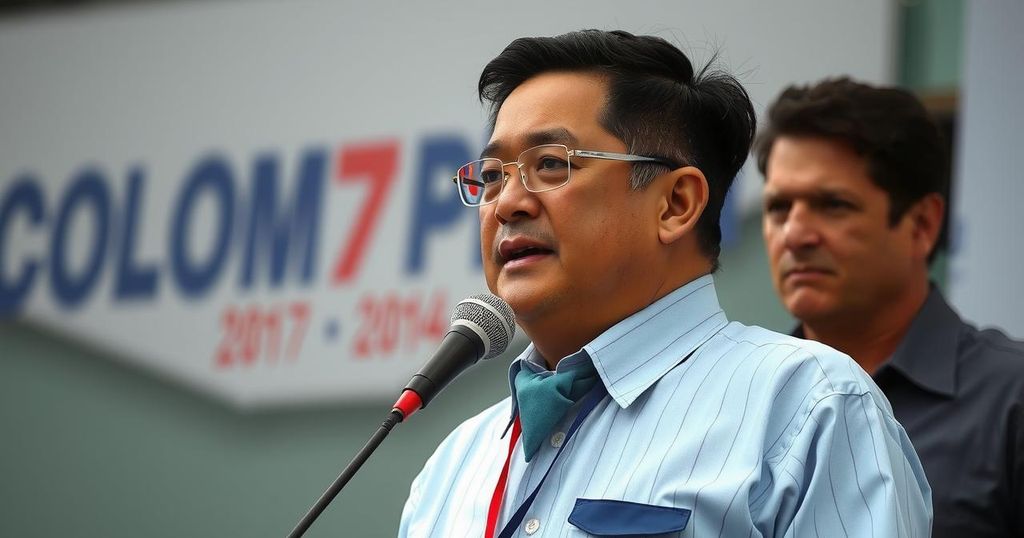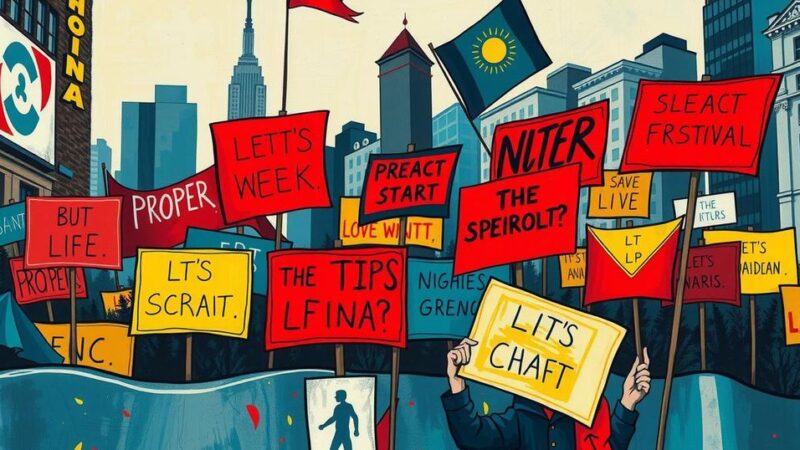President Gustavo Petro’s Historic Pact government, inaugurated in 2022, is under increasing threat from lawfare, political opposition, and the resurgence of former president Alvaro Uribe. Efforts to consolidate leftist political power face obstacles, including violence against social leaders and lack of congressional support for reforms. As Uribe prepares for a 2026 campaign, the stability of Petro’s administration is at risk amid U.S. scrutiny and institutional challenges.
President Gustavo Petro’s Historic Pact government, which has been in power since 2022, marks a significant shift in Colombia’s political landscape as it aims to represent all Colombians inclusively. However, facing formidable opposition from established interests, including corporations and narco-traffickers, the government finds itself challenged by increasing resistance, notably in the form of lawfare, which has previously been used to undermine leftist leaders across Latin America. The prospects for the Historic Pact’s re-election in the upcoming 2026 elections appear dim, as political dynamics evolve and support for Petro dwindles amid heightened political strife.
The need for political consolidation has led Petro to transition the Historic Pact from a coalition to a singular party, a measure introduced during the UP party congress in November 2024. This strategic move aims to safeguard smaller parties against judicial efforts intended to disband leftist formations within Colombia’s polarized political environment. Despite these efforts, the government faces significant hurdles, including ongoing violence against social leaders and former insurgents, with Petro’s record on implementing the 2016 Peace Agreement coming under scrutiny due to continued violations.
In the wake of Alvaro Uribe’s announcement to run for president in 2026, the political climate has grown tenser, with Uribe harnessing public fears surrounding violence to mobilize support from Colombia’s elite. Meanwhile, Petro’s administration struggles to articulate a compelling reform agenda amidst a Congress that has largely resisted government initiatives. Past successes, such as new pension reform legislation, are overshadowed by legislative failures, particularly in healthcare, and ongoing challenges to land distribution efforts aimed at marginalized communities.
The issue of lawfare has become increasingly pertinent, with strictures imposed by right-wing officials seeking to dismantle Petro’s governance through judicial actions. Repeated allegations against Petro, including accusations of campaign finance violations, exemplify the long-standing tactics directed at undermining progressive leadership in Colombia. Moreover, the influence of the United States looms omnipresent, with Washington’s historical support for Colombia’s military and close attention to Petro’s administration reflecting an enduring interest in the stability of U.S. influence in the region.
The landscape leading to the 2026 elections is fraught with complexities. Amidst an increasingly hostile political environment, the Petro administration must navigate the intricacies of lawfare, public sentiment, and the opposition’s concerted efforts to regain control. The path towards achieving democratic reforms and societal equity remains perilous, but an engaged and vigilant citizenry holds the potential to influence the future trajectory of Colombia’s political evolution.
Gustavo Petro’s administration, characterized as a transformative political entity, aims to tackle systemic inequalities and forge a more representative government. However, it has encountered significant challenges, such as violent reprisals against social leaders and obstacles within a congress that is resistant to reform, reflecting the entrenched power of conservative interests. Additionally, the rise of lawfare tactics against leftist leaders in Latin America serves as a cautionary backdrop, revealing a pattern of political persecution grounded in institutional biases and opposition manipulation. The U.S. government’s vested interests in Colombia amplify the stakes of this political struggle, providing military and strategic support in tandem with heightened scrutiny of Petro’s administration.
In summary, President Gustavo Petro faces a multifaceted crisis as his Historic Pact government endeavors to navigate the complexities of lawfare, violent opposition, and inadequate reform initiatives in the lead-up to the 2026 elections. The consolidation of political power among leftist factions, coupled with persistent challenges from the opposition and external influences, poses significant barriers to achieving the promised reforms and maintaining public support. The implications of these dynamics will undoubtedly shape Colombia’s socio-political landscape as citizens prepare for another pivotal electoral cycle.
Original Source: peoplesworld.org






